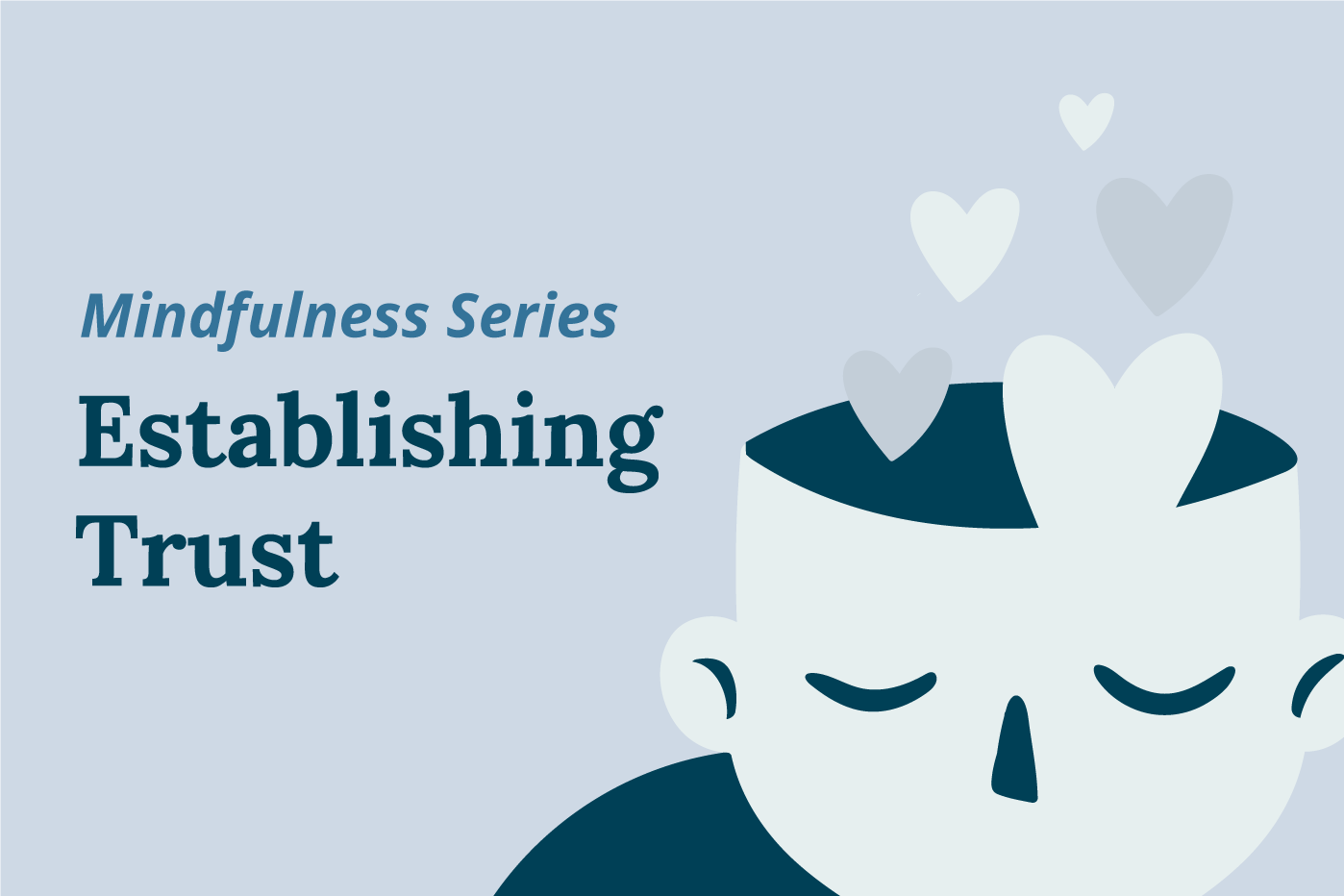Mindfulness: Establishing Trust Among the Workforce
A key tenet of mindfulness is trust, and a key element of trust is knowing and (communicating to others) that it is ok to make mistakes in your job. Without making mistakes it is impossible to learn from them and grow as a human and as a member of the organization. All too often, leaders with understandably high expectations have zero tolerance for mistakes. This approach is born from a relentless pursuit of perfection. While being mindful of goals and continuing to be forward-thinking and results driven are qualities of a positive organizational culture, so must be tolerance for mistakes – whether the mistake be a curiosity driven idea that simply didn’t work out or a simple clerical error. Such tolerance is a key factor in building the trust with your workforce that is so important to a healthy workplace culture.
In their 2019 article discussing the relationship between mindfulness and trust, Professors Yvonne Stedham and Theresa B. Skaar eloquently described that relationship as “to believe despite uncertainty,” and “a person’s willingness to accept vulnerability based upon the positive expectations of the intentions or behavior of another.” Such a description sums up the need for welcome and comfort in making mistakes or making decisions while knowing one’s curiosity or confidence will not be tested if a mistake is made. After all, the greatest innovation is often born from taking a hard turn from the original direction due to a mistake or discovery.
In order to develop trust within the workforce leaders must first learn to trust their own intuition and authority. In previous posts, we have discussed the relationship between mindfulness and elimination of judgmental thoughts. Related to this concept is the idea of self-trust (and its relationship to confidence). When leaders are confident that they have chosen the right people for the job they can display the necessary trust in those people to independently complete the tasks, even if mistakes are made along the way. This is because confident and trusting leaders know that they are working with talented people who will either correct those mistakes or make something even greater out of them.
Cultivating organizational trust also involves leaders taking responsibility for their own actions and well-being. All too often, a workforce takes the blame as “things flow downhill.” When leaders are accountable for their own actions, the workforce trusts them to take responsibility for their own mistakes, while being sympathetic to the mistakes of others. Each is a part of the self-awareness that a mindful organization not only preaches, but also practices. Further, when leaders take responsibility for failures and shortcomings within their own team it makes it far more likely that their team members will be comfortable reporting their concerns to leadership. In essence, when leaders trust themselves the entire team will reciprocate this trust and organizational culture can and will improve.
As you develop a trust for yourself and others you will see more clearly what is happening to and around you. Trusting oneself and others will allow you to be more sensitive to your weaknesses, which will allow for growth in empathy toward the weaknesses of others. It may sound cliché to “feel comfortable in your own skin,” but such an approach is critical to organizational health at all levels and essential to increasing trust within the organization on the journey to a mindful workplace.
Syntrio has developed a number of awareness products that can help your organization begin or continue its journey to mindfulness and improved mental health. We invite you to contact a member of our team to see how these and other products can greatly improve your organizational culture and improve the level of trust between members of your team.

